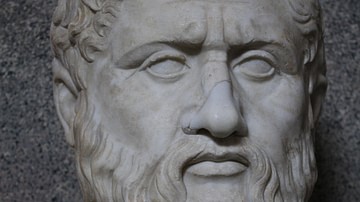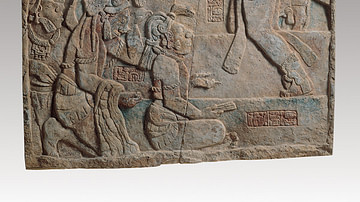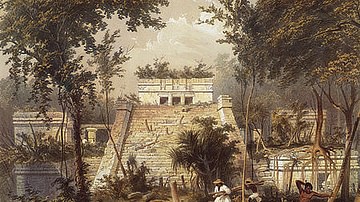Search
Remove Ads
Advertisement
Summary 
Loading AI-generated summary based on World History Encyclopedia articles ...
Search Results

Definition
Protagoras
Protagoras of Abdera (l. c. 485-415 BCE) is considered the greatest of the Sophists of ancient Greece and the first philosopher in the West to promote Subjectivism, arguing that interpretation of any given experience, or anything whatsoever...

Definition
Plato
Plato (l. 424/423 to 348/347 BCE) is the pre-eminent Greek philosopher, known for his Dialogues and for founding his Academy in Athens, traditionally considered the first university in the Western world. Plato was a student of Socrates and...

Article
Protagoras of Abdera: Of All Things Man Is The Measure
Protagoras of Abdera (l.c. 485-415 BCE) is most famous for his claim that "Of all things the measure is Man, of the things that are, that they are, and of the things that are not, that they are not" (DK 80B1) usually rendered simply as "Man...

Article
Plato: The Name and The Poet
Plato (l. c. 424/423 to 348/347 BCE), the Greek philosopher whose works have significantly shaped Western thought and religion, is said to have initially been a poet and playwright and, even if the primary source of this claim (the often...

Article
Protagoras's Paradox
The sophists in ancient Greece were a class of teachers who, for a fairly high fee, would instruct the affluent youth in politics, history, science, law, mathematics and rhetoric as well as the finer points of grammar and history. They professed...

Article
Plato's Lie In The Soul
Plato's Lie in the Soul (or the True Lie) is a concept appearing in Republic, Book II, 382a-382d, defined as "being deceived in that which is the truest and highest part of or about the truest and highest matters" or, in other words, being...

Definition
Maya Government
Ancient Maya government was formed on the basis that rulers were thought to have been god-like, which to some might suggest one unified state. However, the consensus amongst anthropologists supports that each major Maya city remained its...

Article
The Classic Maya Collapse
The Mesoamerican Terminal Classic period (c. 800-925) saw one of the most dramatic civilization collapses in history. Within a century or so the flourishing Classic Maya civilization fell into a permanent decline when once-great cities were...

Article
Life of Plato of Athens
Plato of Athens (424 or 423 to 347 BCE) was an ancient Greek philosopher whose work is considered so important that he may be called the inventor of philosophy as we understand the term today. Some people would want to reserve that honor...

Article
Plato's Greater, Better World in The Last Days of Socrates
The Last Days of Socrates is a modern-day title for the collection of four Socratic dialogues by the Greek philosopher Plato – the Euthyphro, Apology, Crito, and Phaedo – telling the story of the trial, imprisonment, and death of Socrates...